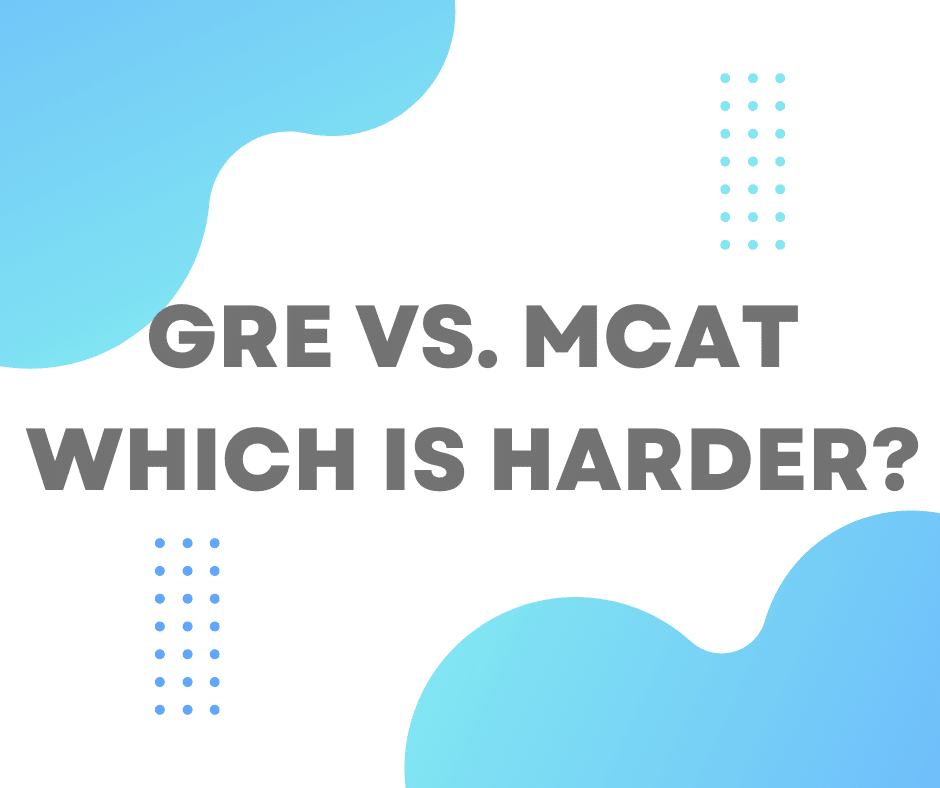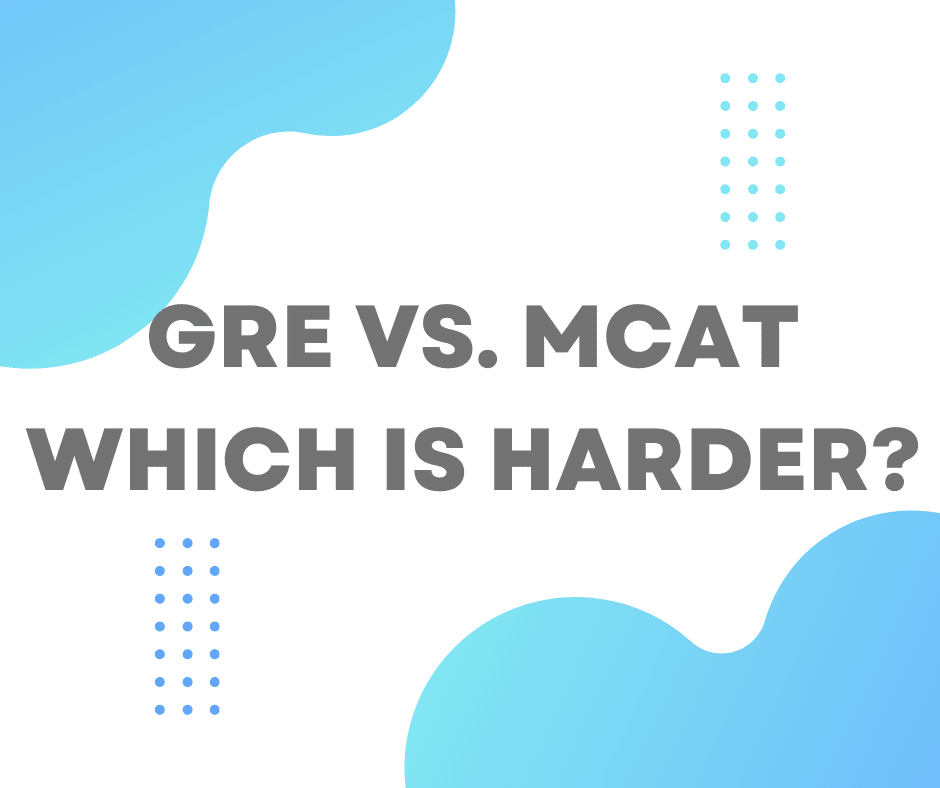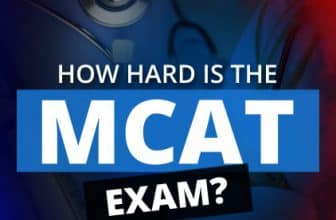

If you’re considering an advanced degree you might find yourself comparing the GRE vs. MCAT. Both of these computer-based standardized tests are necessary for specific upper-level programs. However, there are significant differences between these two entrance exams.
The MCAT is necessary for entry into medical school, while the GRE is a general test that you may need for law school, business degrees, and even some fine arts programs.
Most people think the MCAT is harder than the GRE, but that doesn’t mean the GRE is without challenges.
Below we discuss the MCAT vs. the GRE in detail so you can determine which one is best for your educational needs.
What Is the MCAT?
The medical college admission test, or MCAT, is a standardized test that almost every medical school in Canada and the United States uses to determine admissions.
The AAMC administers the exam from January through September at hundreds of testing sites throughout North America, allowing over 85,000 students to sit for it each year.
This multiple-choice, computer-based test features four sections:
- Biological and Biochemical Foundations of Living Systems
- Chemical and Physical Foundations of Biological Systems
- Psychological, Social, and Biological Foundations of Behavior
- Critical Analysis and Reasoning Skills
Each section centers around an area that medical professionals have determined as key to success in the field. In addition, the MCAT tests skills such as reading comprehension, quantitative reasoning and writing.
Much of the medical college admission test is knowledge specific, so it requires significant study time and resources. The AAMC recommends about 240 hours of studying over three months. We recommend comparing the best MCAT prep courses to ensure you get the highest score the first time. That’s on top of taking undergraduate coursework that instructs on exam topics such as biology, chemistry, psychology, and social sciences.
What Is the GRE?
The graduate record examination, or GRE, is an entrance exam that many graduate schools require for their higher education degree programs, including most masters and doctoral degrees.
The GRE is a more general test than the MCAT. You can think of it as an upper-level SAT or ACT. Rather than knowledge specific questions, you’ll encounter sweeping content that tests a range of academic skills.
The Educational testing service (ETS) administers the GRE via computer throughout the year. In the 2019-2020 exam year there were over 460,000 GRE test takers, and in prior years there were well over 500,000, showing how popular the GRE is.
Just because it’s popular, though, doesn’t mean it’s easy. The GRE uses adaptive questions that cover broad skill sets. So, if you’re doing well on the test, the questions will get progressively harder.
The GRE has three sections:
- Verbal reasoning
- Quantitative reasoning
- Analytical writing
Just like the MCAT, the GRE requires extra studying. However, the amount you’ll need to study can vary significantly. Some students do well after just 50 hours of test prep, while others need over 200 hours.
The amount of studying you need will depend on your verbal reasoning, quantitative reasoning, and writing skills. If you aren’t a native English speaker, you may find the GRE verbal and writing section to be particularly difficult.
GRE vs. MCAT: Side-by-Side
It’s easier to compare these two entrance exams when you see their intricacies side-by-side, as in the table below.
| GRE | MCAT | |
| Purpose | Standardized test for graduate degree program admissions | Standardized test for medical school admissions |
| Sections | Verbal Reasoning, Quantitative Reasoning, Analytical Writing | Biological and Biochemical Foundations of Living Systems; Chemical and Physical Foundations of Biological Systems; Psychological, Social, and Biological Foundations of Behavior; Critical Analysis and Reasoning Skills |
| Length | 3 hours and 45 minutes (includes ten-minute break) | 7 hours and 30 minutes |
| Study Hours | 50 hours or more | 240 hours of more |
| Scoring | Total GRE score is 340 points (170 per section with Analytical Writing scored separately on a 6 point scale) | Total MCAT score ranges from 472- 528 (118 – 132 points per section possible) |
| Cost | about $205 | about $310 |
Preparation: MCAT vs. GRE
Preparation for the MCAT and the GRE both require consistent studying efforts. Typically, though, students have to study more diligently for the MCAT.
Preparing for the MCAT
The AAMC states that all MCAT content comes from the following undergraduate courses:
- biology
- physics
- psychology
- sociology
- general and organic chemistry
- first-semester biochemistry
However, for a top MCAT score, you’ll need additional study material.
For the best MCAT prep course and MCAT practice tests, the AAMC advises that students speak with an NAAHP advisor. You can find an advisor online or through your current university.
Preparing for the GRE
Study plans for the graduate record examination vary significantly depending on the score you need for your chosen educational path.
For example, suppose you’re trying to get into a master’s program in English or Fine Arts. In that case, you may need a higher score on the analytical writing section than on the quantitative reasoning section.
Students who plan to take the GRE typically start with a practice test. Then, they determine a target GRE score.
Once you know your current score vs. your ideal score, you can make a plan to get there using an online program, in-person prep course, or test prep book.
Testing Day: MCAT vs. GRE
The MCAT and the GRE are both challenging tests, but the MCAT is a far longer exam at seven hours and 30 minutes! You can also only take the MCAT at specific times of the year, and though it is a computer-based test, you’ll still need to complete it at an exam center.
Alternatively, you can take the GRE year-round, and you won’t need to go to a testing center. Instead, with the right equipment, you can take the GRE at home. Best of all, it will only take you 3 hours and 45 minutes.
Fees: MCAT vs. GRE
Both standardized tests require a fee. The fee for the GRE is typically around $205, while the MCAT costs about $310. If the fee is an obstacle for you, though, financial aid may be available.
The ETS provides a testing fee discount for the GRE if you can demonstrate financial need, are currently receiving unemployment, or receive aid from a national program already.
The AAMC provides a fee assistance program for those who want to take the MCAT but can’t afford the testing fee. The program also includes low and no-cost study materials for students.
So, Which Is Harder, GRE or MCAT?
Both the MCAT and the GRE are standardized tests that students need for higher education.
The MCAT is for medical schools specifically and requires test takers to have more content knowledge. Its emphasis on the sciences and math makes it difficult for many, and it has a longer test time. So, as any GRE vs. MCAT Reddit discussion will tell you, the MCAT is a much harder test.
That said, the GRE isn’t exactly easy. As a general test, it covers a broad range of subject areas that test takers need for advanced degrees in business, law, and even fine arts. It may not be as difficult as the MCAT, but the GRE can still be a significant challenge that requires lots of studying.
Frequently Asked Questions
If you want to take the MCAT or GRE for a higher education degree program, you might have a few questions. Let’s see if we can answer them.
What’s harder, the GMAT, GRE, or MCAT?
Most people consider the MCAT to be a more difficult test than the GMAT or GRE.
Should you take the GRE or MCAT for PA school?
While some PA schools require the MCAT, many only require the GRE. Once you determine your top-choice schools, you can decide which of the two tests you’ll need to take.
Can the MCAT substitute for the GRE?
No, in most cases, the MCAT cannot substitute for the GRE.
Do med schools accept the GRE?
Most medical schools only accept the MCAT, not the GRE. However, if you’re entering a PA, nursing, veterinary, or other medically-related program, you may need the GRE rather than the MCAT. Check with the medical school you plan to apply to before signing up for either test.




